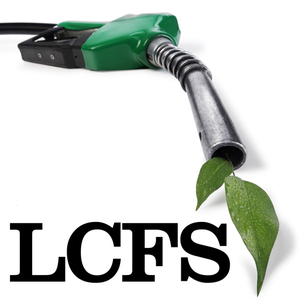CARB proposes additional changes to LCFS amendments

October 2, 2024
BY Erin Voegele
The California Air Resources Board on Oct. 1 published a second set of proposed changes to its pending Low Carbon Fuel Standard modifications, including those that would limit the use of sunflower oil feedstock for biomass-based diesel production, and update regulations related to corn stover and biomethane.
CARB is in the process of updating regulations governing its LCFS program. The agency initially released proposed program amendments in late 2023. Those amendments were subject to a comment period that closed Feb. 20, 2024. CARB was originally expected to take action on the proposal during a March 2024 hearing that was later delayed and is now scheduled for Nov. 8, 2024. On Aug. 12, CARB published a notice that included several proposed updates to the original amendments, including one that aims to limit the use of virgin soybean oil and canola oil used to produce LCFS-compliant biobased diesel fuels.
Under the Aug. 12 amendments, CARB has proposed to provide credits for biomass-based diesel produced from virgin soybean and canola oil for up to 20% of annual biomass-based diesel reported on a company-wide basis. Under the proposal, biomass-based diesel from virgin soybean and canola oil in excess of 20% would be assessed the CI of the applicable diesel pool benchmark for that year, or the certified CI of the applicable fuel pathway, whichever is higher.
Advertisement
In its Oct. 1 notice, CARB proposes to modify the 20% crediting limitation to also include sunflower oil used to produce biobased diesel fuels. The proposed modification clarifies that the provision would apply to transactions for transportation fuels used in California. CARB has also proposed to specify that the 20% provision will not apply to any biomass-based diesel pathway certification applications submitted before the effective date of the regulation until Jan. 1, 2028. The agency said the adjustment aims to provide appropriate time for existing fuel producers to meet the 20% eligibility limitation and adjust their operations and/or feedstock supplies.
The notice also includes a variety of other changes to the proposed LCFS amendments. One provision includes a proposal to modify the description of forest biomass waste based on public feedback and to support alignment with forest biomass waste generated from activities consistent with existing local, state and federal requirements.
CARB has also proposed that corn stover be considered a specified source feedstock, subject to chain of custody requirements, rather than the sustainability certification requirements under a section of LCFS regulations that deals with special circumstances for fuel pathway applications. In the notice, CARB explained that corn stover is considered a waste/residue product and aligns best with the specified source feedstock requirements, rather than the requirements applicable to crop feedstocks primarily grown for biofuel consumption.
In addition, CARB is proposing to allow for book-and-claim accounting of biomethane to produce electricity for electric vehicle charging, provided the electricity is generated using a fuel cell. The agency said the change aims to increase flexibility for biomethane projects to produce low carbon intensity (CI) electricity and supports California’s zero emission vehicle goals while prioritizing electricity generated using non-combustion technology.
Advertisement
Other changes related to biomethane include a provision to add a new temporary CI for low-CI electricity produced by fuel cell from biomethane from dairy and swine manure and a provision to update the temporary fuel pathway for hydrogen produced from biomethane from dairy and swine manure to -40.
The proposed LCFS amendments published on Oct. 1 are subject to a public comment period that closes Oct. 16. CARB will address the proposed LCFS changes during a Nov. 8, 2024, hearing and could vote to implement the amendments at that time.
A full copy of the Oct. 1 notice is available on the CARB website.
Related Stories
Scientists at ORNL have developed a first-ever method of detecting ribonucleic acid, or RNA, inside plant cells using a technique that results in a visible fluorescent signal. The technology could help develop hardier bioenergy and food crops.
The 2025 International Fuel Ethanol Workshop & Expo, held in Omaha, Nebraska, concluded with record-breaking participation and industry engagement, reinforcing its role as the largest and most influential gathering in the global ethanol sector.
TotalEnergies and Quatra, the European market leader in the collection and recycling of used cooking oil, have signed a 15-year agreement beginning in 2026, for the supply of 60,000 tons a year of European used cooking oil.
The USDA maintained its forecast for 2025-’26 soybean oil use in biofuel production in its latest World Agricultural Supply and Demand Estimates report, released June 12. The estimate for 2024-’25 soybean use in biofuel production was revised down.
SkyNRG on June 5 released its fifth Sustainable Aviation Fuel Market Outlook. The report, developed in collaboration with ICF, highlights the need to scale up technologies and feedstocks that are an alternative to HEFA fuels.
Upcoming Events










